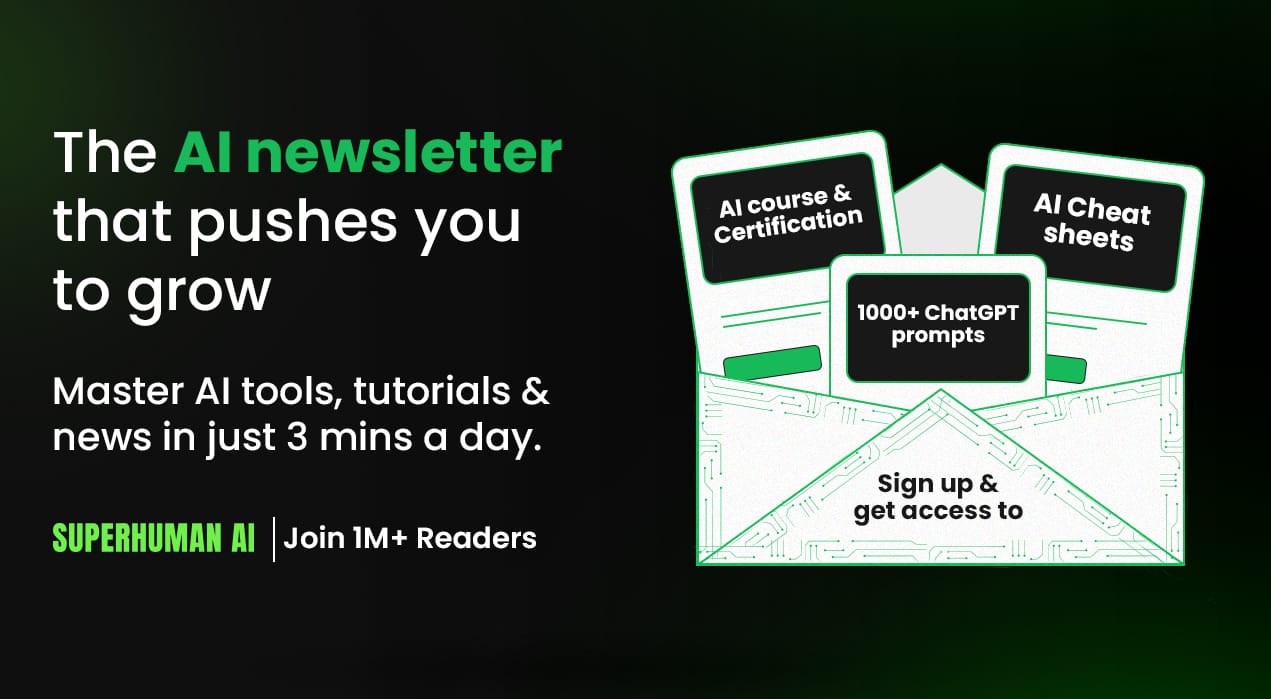- AIHealthTech Insider
- Posts
- 🚸AI Protects Kids: 8.5% Less Misdiagnosis : Issue # 46
🚸AI Protects Kids: 8.5% Less Misdiagnosis : Issue # 46
Plus: 🩺Can AI Outsmart Doctors? 95.2% USMLE Score!

AIHealthTech Insider: Issue #46
April 28th 2025
Artificial intelligence is reshaping healthcare faster than ever, from outsmarting doctors on medical exams to detecting lung cancer months earlier. In this issue we dive into five groundbreaking AI advancements that promise to enhance diagnostics, streamline workflows, and save lives. These innovations—backed by rigorous research and industry recognition—highlight AI’s potential to make healthcare smarter, more equitable, and accessible.
Don’t miss our poll to share your vision for AI’s future in medicine! 👇️
🎥 Watch & Listen with NotebookLM
This week’s issue comes with Video Overview powered by NotebookLM
SCAI Outperforms Doctors on Medical Exams
University at Buffalo’s Semantic Clinical Artificial Intelligence (SCAI) scored an unprecedented 95.2% on the USMLE Step 3, surpassing GPT4 Omni (90.5%).

Source: Ideogram 3.0/ TheAI HealthTech Insider
Key Findings:
Processes 13 million medical facts with semantic reasoning.
Eliminates bias by excluding clinical notes from training.
Why It Matters:
SCAI’s clinical reasoning could support physicians and expand access to specialty care.
LIA Wins Healthcare Innovation Award
Lightning Step’s AI assistant, LIA, clinched the Silver Stevie® Award for 2025 Healthcare Technology Solution of the Year, transforming behavioral health workflows.
Key Features:
Automates real-time clinical documentation.
Integrates with HIPAA-compliant EMR platforms.
Why It Matters:
LIA reduces administrative burdens, allowing clinicians to focus on patient care.
AI Detects Lung Cancer 4 Months Earlier
Amsterdam UMC’s AI-powered diagnostics detect lung cancer signs during routine GP visits, analyzing 525,526 patient records, including 2,386 cases.

Source: Ideogram 3.0/ TheAI HealthTech Insider
Key Findings:
Detects 62% of cases 4 months before standard methods.
Reduces false positives compared to traditional screening.
Why It Matters:
Early detection could boost survival rates for lung cancer, where 80% of late-stage patients die within a year.
FROM OUR SPONSOR
Find out why 1M+ professionals read Superhuman AI daily.
AI won't take over the world. People who know how to use AI will.
Here's how to stay ahead with AI:
Sign up for Superhuman AI. The AI newsletter read by 1M+ pros.
Master AI tools, tutorials, and news in just 3 minutes a day.
Become 10X more productive using AI.
AI Enhances Child Abuse Detection
A study at the Pediatric Academic Societies (PAS) 2025 Meeting showed AI reduces child abuse misdiagnosis by 8.5% in emergency rooms across seven children’s hospitals.

Source: Ideogram 3.0/ TheAI HealthTech Insider
Key Findings:
Analyzed 3,317 ER visits, focusing on children under 10.
Uses machine learning to detect high-risk injury patterns.
Why It Matters:
AI’s precision helps protect vulnerable children by improving early intervention.
AI Predicts Kidney Cancer Treatment Success
UT Southwestern’s AI model predicts which kidney cancer patients will benefit from anti-angiogenic therapy using standard pathology slides.
Key Findings:
Matches genetic tests’ 73% accuracy with accessible tissue slides.
Targets clear cell renal cell carcinoma (ccRCC), affecting 435,000 annually.
Why It Matters:
Avoids ineffective treatments, reducing side effects and costs.
Your 2050 AI Healthcare Pick

Source: GPT-4o/ TheAI HealthTech Insider
Vote now and see results in Issue #47!
Keep Reading
Pacemakers, Smart Glasses, and AI Surgeons—Mind-Blowing Advances Inside Issue #45
AI Births Babies, Beats Cancer—Shocking Truth Inside Issue #44
Poll Results Are In: Your Dream AI Health Tool
The top pick in our previous week AIHealthTech Insider poll is...
🥇36.36% want an AI wristband to predict and prevent health issues.
Stay Ahead: AI Healthcare News!
This is just a glimpse of the AI healthcare revolution. Subscribe for exclusive updates on medicine’s future!






